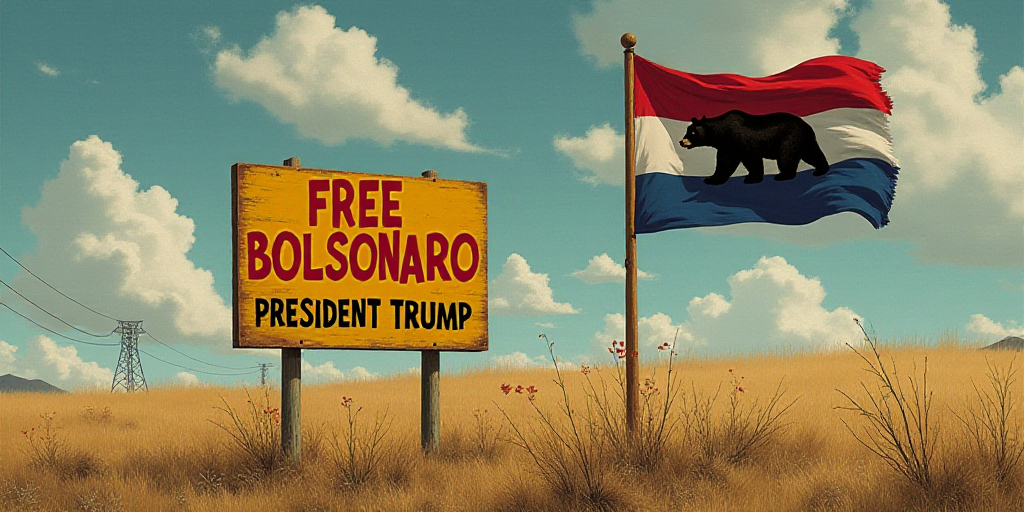Introduction
The media coverage of Jair Bolsonaro’s trial in Brazil often highlights the striking similarities between his case and that of his U.S. counterpart, Donald Trump. Both are right-wing outsiders who governed during a pandemic, openly promoted medical and climate change denialism, declared they would not accept electoral defeat, and incited supporters to storm legislative bodies after losing elections.
Divergent Paths
While one faces trial and conviction, the other governs the United States. The Economist aptly noted that “at least temporarily, the role of democratic adult in the Western Hemisphere has shifted south.” Understanding this shift is crucial to addressing the primary challenges facing democracies today.
Bolsonaro’s Democratic Beginnings
Bolsonaro’s political career began with Brazil’s first elections following the restoration of democracy in 1988, which ended over two decades of military dictatorship. His platform was rooted in authoritarianism, having stated that Brazil’s military dictatorship failed because it did not kill enough leftists. He also advocated for executing former President Fernando Henrique Cardoso and promised to close Congress if he became president. As a member of the Chamber of Deputies, Bolsonaro voted in favor of a colonel who oversaw torture sessions during the dictatorship, demonstrating his longstanding attack on democracy while emerging from it.
Trump’s Distinct Path
Trump’s political rise began in the 1980s with inflammatory statements, such as calling for the death penalty for five wrongly accused black and Latino teenagers in a New York rape case. He cultivated an image of a reality-show plutocrat while building his political identity and campaigning on economic and cultural grievances. Trump never embraced liberal democracy; instead, he primarily targeted the courts, believing wealth and power exempt one from the law. He attempted to weaken the U.S. Constitution, end the Federal Reserve’s independence, manipulate the electoral system, and redefine citizenship access during his second presidency.
Electoral Systems and Consequences
Bolsonaro’s Brazil has a more centralized and robust electoral system than the fragmented U.S. system, with nationwide elections supervised by federal courts on the same day. Voting is universal and equitable, from Amazonian indigenous tribes to agriculturalists in the pampas. Results are announced promptly, contrasting with Trump’s exploitation of the U.S. system to erode public trust in democracy and lay groundwork for the January 6, 2021 Capitol insurrection.
Bolsonaro went further, attempting to prevent Lula da Silva’s inauguration with a decree project and even planning to assassinate Lula, vice president Geraldo Alckmin, and Supreme Court Justice Alexandre de Moraes. His supporters camped outside military headquarters post-elections, demanding intervention while government officials encouraged escalation. A week after Lula’s inauguration, they violently stormed the headquarters of all three branches of government.
Trump faced fewer legal repercussions after inciting the Capitol riot. Charges were dismissed due to the Supreme Court’s near-total legal immunity for presidents. His 2024 electoral victory ended any accountability attempts.
Judicial Resistance
Bolsonaro faced greater resistance from the judiciary than Trump. He targeted the Brazilian Supreme Court throughout his presidency, with the attorney general’s charges against him marking a turning point in Brazilian history. Unlike the U.S., where attempts at a military coup have remained unpunished, Brazil’s post-dictatorship constitution established strong protections against democratic erosion.
Bolsonaro is being tried for attempting to abolish the rule of law, a crime specified in Brazilian legislation but absent in the U.S. Brazilian law explicitly criminalizes coup attempts, assuming a successful one would threaten accountability. Judges rejected Bolsonaro’s claim that he only considered the idea without acting on it.
Conclusion
Bolsonaro and Trump symbolize contemporary competitive authoritarianism, using disinformation, anti-scientific and anti-rights rhetoric, and disdaining democratic institutions. However, Bolsonaro embodies the unmistakable mark of 20th-century military dictatorship. While no country is entirely safe from democratic erosion, Brazil’s post-dictatorship constitution has built robust protections against it.
Author Bio
Pedro Abramovay, Brazil’s Justice Secretary from 2010 to 2011 and Vice President of Programs at Open Society Foundations, wrote this piece.
Copyright: Project Syndicate, 1995 – 2025
www.project-syndicate.org






